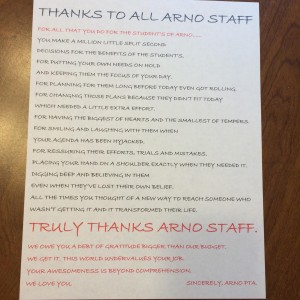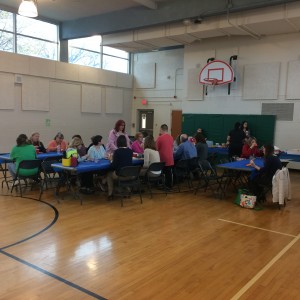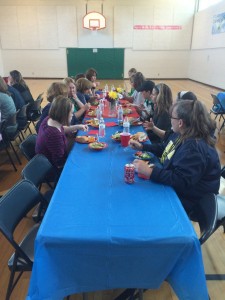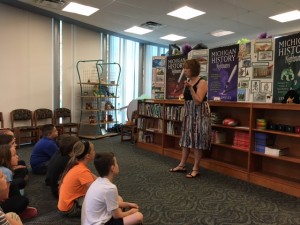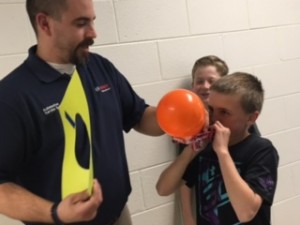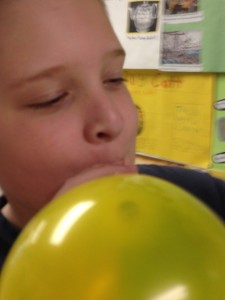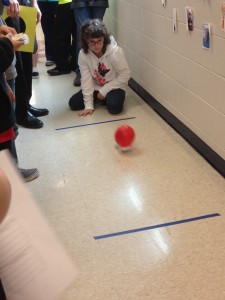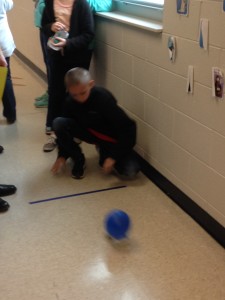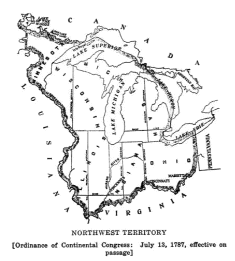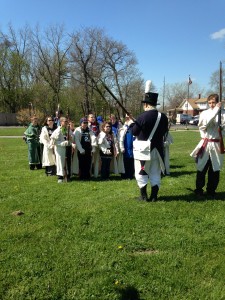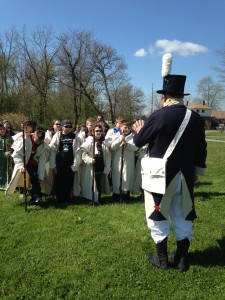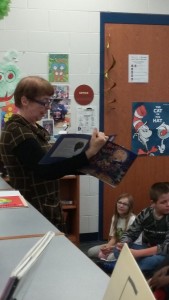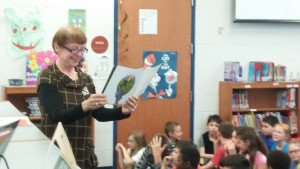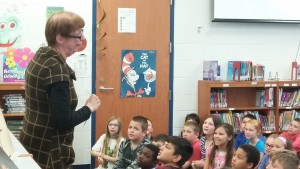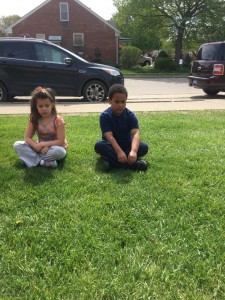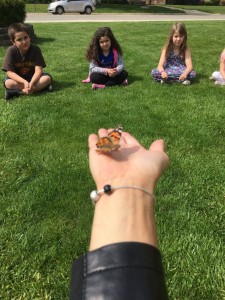Coming soon to Arno…
May 16
Ad council 9:00
May 17
PTA Calendar meeting 3:00- Sarah, Nicole, Melissa
4/5th grade concert 7:00
May 18
Scholarship night at APHS 7:00
May 19
Kinder screener day
Teacher Eval Committee- Steve, Carrie 4:00
May 20
SIP Team meeting-all day- Sarah, Carrie, Megan
Kids Hope Party 2:00 in cafe
Mary Howard Week 2
Voluminous reading is an intervention – struggling readers need to read 200% more and not in books that don’t challenge them. So with that thought in mind, how many opportunities do you have in your classroom, and push at home, for struggling students to just be able to read a book? What kind of opportunities can we create within our classroom walls (or beyond) for this to happen?
High interest books that make their heart sing are a big component in all grades as kids can transcend their reading level 2 years when they are interested in reading the content. Keeping that in mind- how do we go about choosing the books we have available in class? What kinds of books might reflect that in your classroom? Are students allowed to participate in choosing at least some of the material they want to read?
Some Research…
According to Worthy (1996), it is not sufficient to provide books that are geared solely to a child’s instructional reading level. When reading level is solely considered, below level basal readers are generally used for instructing struggling readers. Reading such “baby books” often makes struggling readers feel more defeated. Focusing on student interests in selecting reading materials may be more beneficial in promoting reading success than a focus on level. It turns out that interest is far more significant than readability. When students have strong interest in what they read, they can frequently transcend their reading level (Worthy, 1996). Many educators and researchers consider interest to be an essential factor in all learning (Hidi, 1990; Schiefele, 1991). Students who do not enjoy typical school texts often fail to engage in reading, and may develop a lifelong aversion to reading. Even if they are not initially struggling readers, “reluctant readers tend to gradually lose some academic ground, because wide Journal of Inquiry & Action in Education, 3(2), 2010 32 | Page reading is related to increases in general knowledge and reading comprehension” (Williamson & Williamson, 1988).
RtI Arno Team
If you are interested in the joining the Arno RtI team, which will not meet until fall, please let me know. I can still get you Mary Howard’s book for the summer. On the team so far…
Sandy, Michelle, Stella, Cindy, Barb, and Cathy

Thank you Teachers
Thanks!
Your Arno PTA
Author Lynne Smyles Pays Arno a Visit
Our upper grades enjoyed listening to another Michigan author on Friday. Lynne Smyles, former school teacher, has written several books called “Michigan History Nightmares” and shared some of them with the students. I am ordering 10 copies of each of her books if you wish to use them in group in the future (It will be in the book room Barb is getting together).
In addition, an order form went home today if the students wish to order a copy. Lynne will be back next Friday to fulfill orders- please be sure that all book order forms are in by next Thursday, May 19
Smyles Book Order Form
Rover Project
Over the next two weeks, engineers from Bosch will be working with 5th grade teams to produce “Mars Rovers”. Students will learn the value of team work and persistence as we work on this project together. Each of the rovers will be tested for distance and accuracy. On May 12th we will have a school-wide competition of the rovers. Good luck 5th grade Jr. Engineers!
5th grade class testing their Rover engines.
Off to the River Raisin…
Our 5th graders recently took a field trip to the River Raisin Battlefield. A little history of that battlefield area:
From January 18th to January 23rd, 1813, the north bank of the River Raisin became a battleground where the forces of the United States and Great Britain fought each other for the control of all of Michigan and the Lower Great Lakes. At stake was the destiny not only of the 2 countries (United State and Great Britain), but also the future of Frenchtown, (known today as Monroe Michigan) and of Canada, and of Tecumseh’s alliance of Native-American tribes.
Dr. Hall Guest Reader
Enjoy some pictures of Dr. Hall reading to the 4th grade classes on Tuesday. She has been coming in monthly this school year to read to our students and they love it!
Every educator teaches for different reasons, although there is surely overlap. Perhaps they want to change the world or help young people grow into good citizens, but at the heart of it, each educator remains in the teaching profession for a variety of reasons that usually has something to do with being a positive change agent. Early in my career I promised myself that if I ever stopped loving what I do,that I would stop teaching. No student wants to be taught by a person who is counting down the minutes to retirement and doing so, is a great disservice to the profession; they deserve better.
So here are 5 questions, every educator should ask themselves every day in order to ensure they are in it for the “right” reasons.
5 Questions
- Am I excited about going to school today? Rather than call my job, work, I look forward to the endless possibility of learning every day. This is not to say there are days where I don’t feel well and that bad feelings make it challenging to get up. I am a human being and therefore bad days happen. However, if a bad day turns into many and for whatever reason it becomes a chore instead of a labor of love, it is time for me to seriously consider a shift in my career. Firmly, I believe that to be a highly effective and motivating teacher, we must invest ourselves completely and with a whole and open heart or else it will read on our faces and students will sense our hesitation. This can have a devastating effect on our own abilities to impact our students. Congruency in what we teach is essential and therefore what we say must match what we do.
- Do I still believe that I can learn new stuff about my content? After 13 years of teaching English and Journalism, I’m still excited to learn new things about my content. To me, learning through my students’ experiences and perspectives makes every day full of possibility and learning. This is the journey and it is very exciting. My students offer context that I could have never noticed and in doing so help me to see things differently and together we collaborate to develop new ideas. In addition to this, I can be listening to NPR or watching a movie or listening to music and I’ll get a crazy idea that just may change the way we all see something. Since I’ve developed amazing relationships with my students when I ask them to trust me through my harebrained ideas, they usually go with me on the journey. Sometimes I don’t think my ideas all the way through, but the kids always trust me and we learn together. I take risks. They see me model risk taking and sometimes I fail, but that’s okay because that creates more opportunity for me to problem solve and grow.
- Are my students needs at the front of everything I do? Let’s face it, I’m not a teacher for me, I’m a teacher for my students. Having had my time as a high school student, it would be incredibly egotistical to make this experience about me. Instead, students are empowered to make important decisions about their learning and it is my job to listen when they speak and adjust accordingly. They know more about themselves than I know and therefore I need to teach them to trust that inner voice. It starts by allowing myself to trust them when they share. All learning in the space is determined by student need gathered in a number of different ways: one on one conversations and conferences, student reflections, self-assessment surveys and observations throughout our class time.
- How do I implement student voice and choice in my decision making for learning?Students have great ideas and I must be open to hearing them. For example, I can’t ask them to share what they think and then shut them down when I don’t like what they say. Once empowered, students will rise to a number of occasions you didn’t think possible. Step out of the way of student awesomeness and cheer them along being a great supporter and facilitator of their learning. Their ideas matter and therefore should factor in to everything we do in the class. So project choices must be purposefully planned with their feedback, considering the use of technology and interest with those choices. Students are allowed to write on blogs to develop their own voice, taught to use social media, to reflect on projects and to collaborate with each other to affect positive change in our learning space.
- What risks can I take today that model the growth mindset? I can’t expect students to take risks if I don’t take them myself. This means often standing up against the system to try to improve their learning experiences. Each risk I take runs the risk of failure, but that is okay. Mistakes are beginning of growth and change can only come once we realize that must try and try again until we grow adequately to succeed. Thetenacity and fortitude developed through this process is invaluable in the learning and reflecting cycle, so we must model what we expect.
Each day is a potential for growth, not just as a teacher but as a learner and this must be evident in all that we do. Questions that propel us in this noble profession should not be driven by time off or pensions, but rather the enormous impact we can have to enact change in our world.
Have a Great Week!

